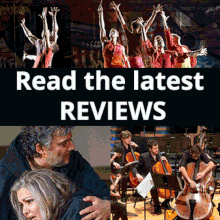Since 2009, the Dresden Music Festival’s Intendant Jan Vogler has embraced its public with all the virtuosity and warmth that makes him one of the world’s premiere cellists. Shepherding the Festival safely through the Coronavirus pandemic, he has affirmed its standing as one the most prestigious classical music festivals in Europe.
The Festival’s forward-looking creativity can be seen in its 65 programmes, which cover everything from early music on period instruments – including Beethoven’s Missa solemnis at the Frauenkirche – to classical symphonic music, jazz, and other musics from around the world. Vocal fans can look forward to Christiane Karg, Anna Prohaska and Joyce DiDonato presenting three very conceptually different programs. There will be semi-staged, period instrument orchestra performances of Schumann’s Genoveva with the Helsinki Baroque Orchestra. And notably, Wagner’s Das Rheingold will be performed on period instruments, with the combined forces of the Dresden Festival Orchestra and Concerto Köln under Kent Nagano.
When I spoke to Jan Vogler at his home in New York in February, he was practicing the multi-authored concerto Three Continents he would be playing in Seattle. He had just played the Elgar Concerto with Jaap van Zweden in Hong Kong, and in Dresden he had played Bach at the Semperoper when architect Daniel Libeskind was awarded the Dresden International Peace Prize.
Vogler’s new Sony Classical recording with the Moritzburg Festival Orchestra of concertos by Lalo and Enrique Casals was released in March, displaying the cellist at the height of his powers. “It’s a very Wagnerian, Straussian, Catalan piece,” he says. “We recorded it in the Lukaskirche in Dresden where Carlos Kleiber, Karajan and Rudolf Kempe made so many famous recordings.”
Apparently, taking on two jobs has only increased Vogler’s productivity. “I’m very lucky,” he says, “to always have projects with my cello. That way I can get up early, talk two hours with my Festival team, have breakfast, and practice for three or four hours during which I create ideas for the Festival. The truth is, I couldn’t be a good Intendant without also being a cellist.”
The Festival opens on 5th May with Sean Shepherd’s On a Clear Day, which Vogler describes as “a big, visionary piece, for cello, orchestra and both professional and children’s choruses. The forces will include the Philharmonisches Staatsorchester Hamburg under Kent Nagano and 120 children from Germany and New York. I’m like the cantor in this piece, narrating with my cello. It has virtuosic elements but there’s more. I like character pieces with lots of singing in them like Schelomo and Don Quixote, and of course the Dvořák Concerto, and I think Sean had heard that singing element while listening to my playing and used it to give me a Schelomo role in dialogue with the choir, orchestra and Kent. I like being in touch with everyone and yet at the same time having my own voice.”
Vogler describes the texts by the poet Ulla Hahn as saying to “humanity that we have to be tolerant with our heart and feelings, and do what we can for our fellow citizens.” He is proud that while world premieres are usually “hidden somewhere in the first half, with Brahms or Beethoven in the second half, here we are giving the premiere the importance of the entire second half” following Brahms’ devotional Schicksalslied and Beethoven’s Eighth Symphony.
Vogler is also proud that On a Clear Day will be premiered at Carnegie Hall, on 22nd April, before going to the Elbphilharmonie in Hamburg and coming to the Kulturpalast in Dresden. “It’s the first time we’ve done it this way. Usually the new commission will be premiered in Dresden before going out into the world.” He used as an example the Three Continents concerto by three composers from three continents: Nico Muhly, Sven Helbig, and Zhou Long. “We premiered it in Dresden, played it in Cologne, and now I’m going to Seattle and then to Singapore – so we are bringing it to three continents. Premiering Sean’s piece in New York,” he adds, “was also a gesture to say it doesn’t matter where a project starts. The most important thing is that we connect with cultural institutions and people around the world.”
Connections were also key to putting together the 17 concerts with either piano concertos or recitals, including ten different pianists playing Liszt’s arrangements for solo piano of the Beethoven symphonies – with two pianos for Ninth. Dresden Festival’s theme this year is “Black and White”, with monochromatic design following the keys of the piano. When I asked how a cellist could be so passionate about all things pianistic, Vogler tells me it was because he had listened to piano music so much when he was a child. “I owned the Horowitz and Rubinstein recordings and I was a big fan. I wasn’t so focused my own piano lessons, however, because I loved to play the cello. But pianist friends like Louis Lortie and Hélène Grimaud were really extremely inspiring and encouraging.”
I ask how he was able to get all these pianists together and coordinate the programming to fit the black and white theme? He says that he had started with a long list: “I just wrote down all the great pianists of all generations, and I said, so who knows whom? I actually knew quite a few personally so I called them up and asked, ‘Would you be part of it? Would you have any problem with other big names coming?’ And they said, ‘No, we’d love it.’”
Dresden’s unusual period-instrument presentation of Rheingold resulted from Vogler’s friendship with Kent Nagano. “We met about 15 years ago performing Don Quixote and soon further collaborations were in the mix. When Kent asked me whether his Wagner readings to perform the Ring Cycle on period instruments with Concerto Köln could be something for the Dresden Festival, I said: ‘it’s perfect’. The fact that we were able to combine our Dresden Festival Orchestra with Concerto Köln has greatly enhanced the impact and success of the production.”
Vogler’s ambitions for the Ring project include founding a Wagner Academy in Dresden “like the one in Pesaro for Rossini, where we can assemble knowledge about singing and conducting Wagner. Obviously it’s a large project that will take us probably ten years because of the depth of musicological research we are drawing on.” (Dresden was Wagner’s home from 1842–49.)
The project also directly confronts the controversy surrounding Wagner, with the help of historian William Steinberg from Brown University, a nephew of the great conductor William Steinberg. He has decried “the drive to separate the good Wagner from the bad,” and is working with the Festival to provide historical context to the composer’s antisemitism. “We want to bring transparency and light into the dark side of Wagner,” Vogler says, “to show people that we are not glorifying someone split between genius and narcissism.”
Vogler tells me that the Wagner project “gives the festival an anchor. Festivals are often like fireworks,” he explains. “They’re really nice but when they’re done, they’re done – a wisp of smoke and that’s it. Here we have something sustainable where we can work with the Dresden Festival Orchestra and Concerto Köln together to develop a Ring Cycle over the years.”
“Rheingold will tour to the Lucerne Festival and Cologne this August; next year it will be Die Walküre. And when we have completed the cycle we’ll tour it, possibly to New York. Imagine playing the whole Ring on original instruments!” And when I asked about the possibility of a period staging, Vogler admitted: “I don’t know where we’ll end up. It’s a journey. For now, it’s not going to be period staged but at some point we will think about that too.”
Vogler also admitted that he loves Dresden’s “music atmosphere and incredible love of classical music. Dresden has a very high percentage of people who love to go to classical music concerts,” he said. “It’s always been this way, nobody knows exactly why. People often speak to me on the street after a concert. It’s like Vienna where culture is at its core – it makes Dresden a great place for a festival.”
Dresden Music Festival 2023 runs from 5th May to 18th June. This interview was sponsored by the Dresden Music Festival.




